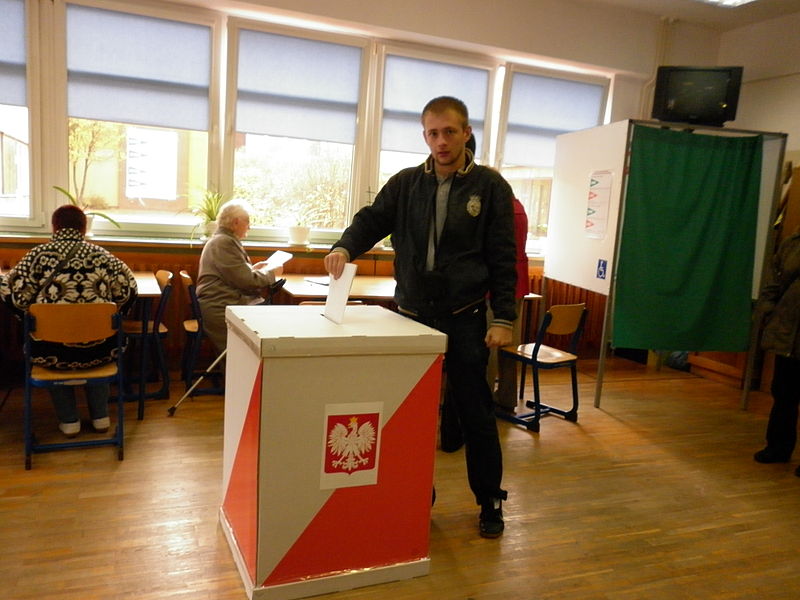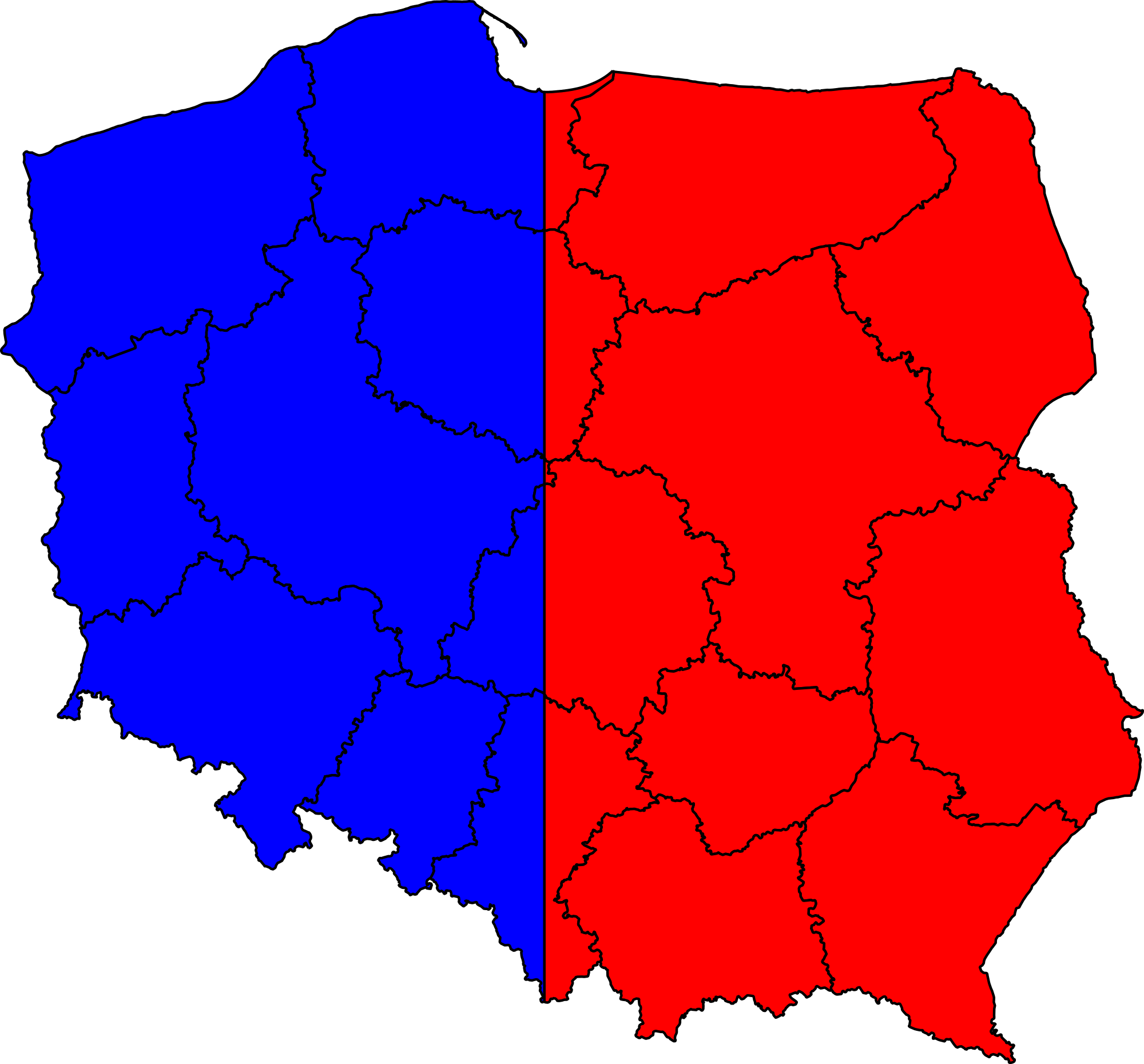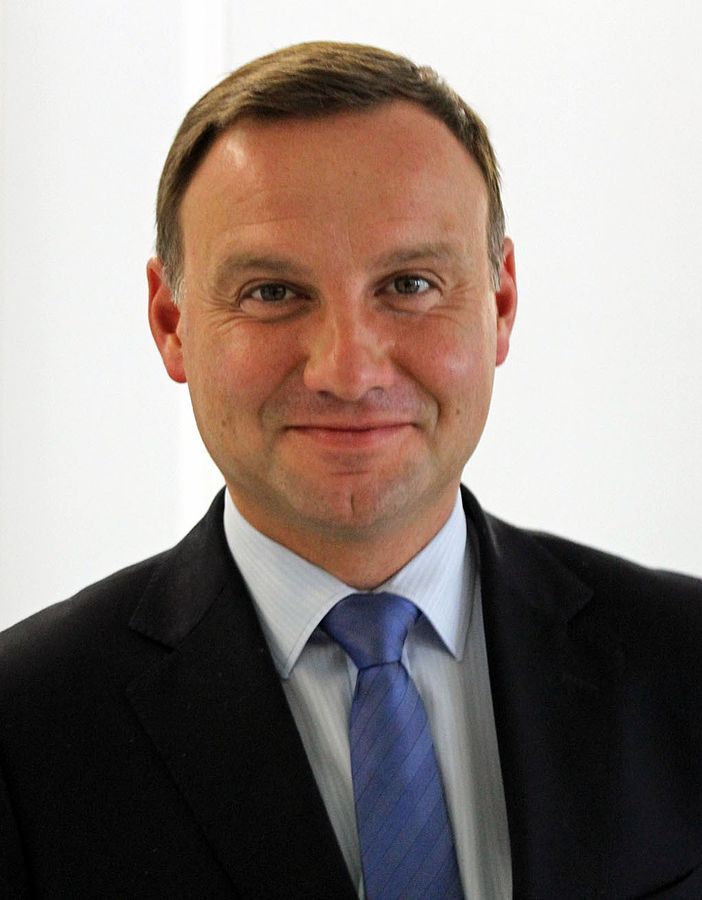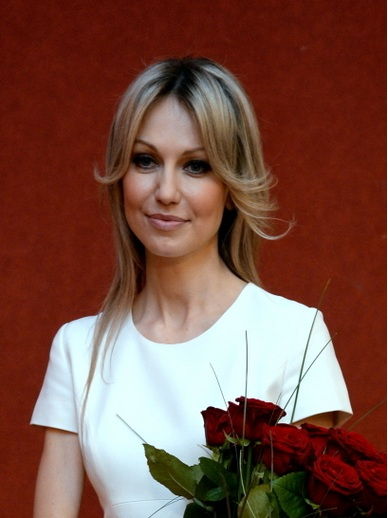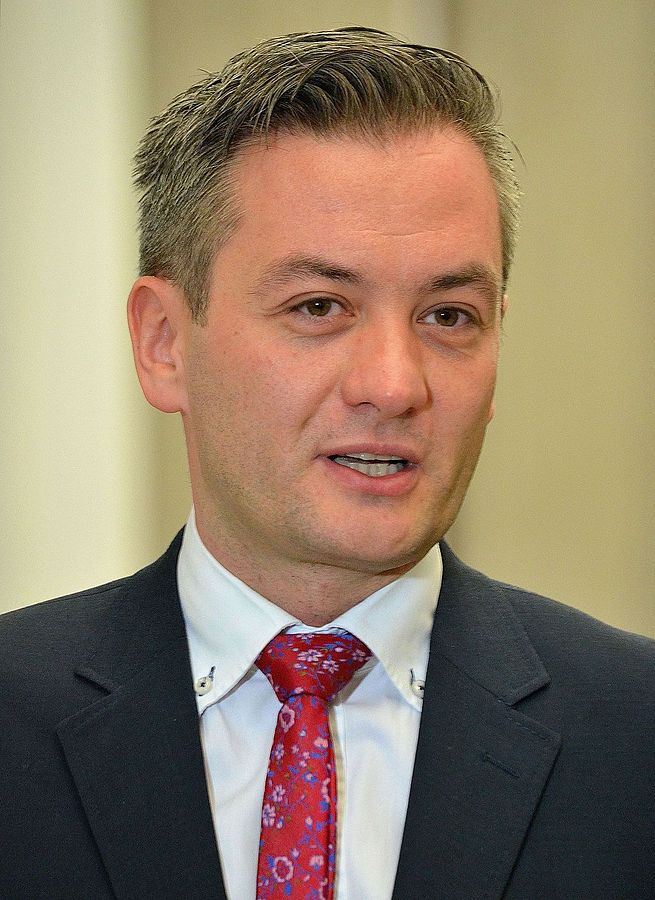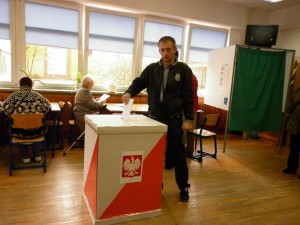 Oncoming parliamentary election in Poland might be the most significant ones in more than a decade. Andrzej Duda’s victory in presidential elections earlier this year proved that skillfull play on moods of the public, tired with 8 years of Platforma Obywatelska government, fueled with strong smearing campaign might result in such suprising results as a victory of completely unknown politician representing the party not liked by majority of Poles has proven.
Oncoming parliamentary election in Poland might be the most significant ones in more than a decade. Andrzej Duda’s victory in presidential elections earlier this year proved that skillfull play on moods of the public, tired with 8 years of Platforma Obywatelska government, fueled with strong smearing campaign might result in such suprising results as a victory of completely unknown politician representing the party not liked by majority of Poles has proven.
But while president is (quite unfairly) seen as just decorative position and vote cast on Duda (or, in first round, on Paweł Kukiz) can be seen just as a desperate attempt to stick out middle finger to the current political establishment, parliamentary elections are governed by different rules. This time mass media and internet campaign portraying Platforma’s politicians as clumsy idiots, that proven to be such a great success in presidential elections, might not be enough.
This is why Prawo I Sprawiedliwość (Law and Justice) went to offensive. It’s new face, Beata Szydło, designated by Jarosław Kaczyński to be a future prime minister, keeps adding to the already towering mountain of unreal promises. 500 zł for every children, supporting economically unviable coal mines, lowering taxes, increasing expedinture, their list of postulates only lack promises that if they win, every Pole will be rich, young and beautiful. Estimated costs of those promises are astronomical, and as calculated by independent experts, even proposed changes to the taxation system will leave PiS short by nearly 40 billions if it really wanted to go ahead with them.
This is a similar tactics to the one that brought PiS victory in 2005. Social promises, fresh face and Kaczyński’s declaration that he is not hungry for a position of prime minister (in 2005 he appointed relatively unknown Kazimierz Marcinkiewicz as a prime minister, then quickly replaced him when he opposed to be just a puppet and tried to be a little more independent). Prawo I Sprawiedliwość don’t even tries to hide the fact, that they deliberately hidden their most radical politicians, such as paranoid Antoni Macierewicz, leading face in Smoleńsk Conspiracy Theory or radical Krystyna Pawłowicz, known for her exeptional rudeness. They also removed their project of the constitution from the party website in fear that it will scare voters away. Their campaign aims in it’s significant part at young people, who might not remember what was happening after 2005. But when one reads deeper into right wing press, it becames clear that this is all just a facade, and real aim is to substantially change the whole poltical system like it happened in recent years in Hungary. This is why Kaczyński neads a full majority in the parliament, as he is unlikely to be able to create a coalition with any other significant player – noone would be willing to risk being treated like Samoobrona and Liga Polskich Rodzin, who were it’s coalition partners in 2005 and then were destroyed by the coalition leaders with some dirty tricks.
Platforma Obywatelska (Civic Platform) also tries to use it’s rhetoric from before a decade, portraying itself as the only option to stop Prawo I Sprawiedliwosć march for power. It’s problem is that during the 8 years in government, it gradually lost it’s momentum and while trying to make everyone happy, failed to introduce many important reforms, satisfying itself with casual administration. Many of it’s politicians became entangled into some shabby interest, although the eavesdropping affair (see more here: https://orynski.eu/on-eavesdropping-affair-in-poland/ ) despite several desperate attempts from right side to draw public interest to it, proved to be a storm in a teacup. Yet, Platforma lacks a expressive leadership It’s desperate attempts to draw more voters by enlisting several renegades from other parties – including even Ludwik Dorn, formerly one of the leaders of Prawo I Sprawiedliwosć, called “a third Kaczyński twin” – seems to be backfiring, as people start to wonder if PO is really so different to dreaded PiS.
But massive campaign to deter people from voting PO fuelled also some other organizations. Movement of Paweł Kukiz who’s results were the biggest surprise of the presidential election still maintains significant support, despite turbulences amongst his supporters and the fact, that his electoral lists seem to be compiled of some random people sprinkled with celebrities such as hip-hop artists Liroy. It is not helpful that Paweł Kukiz by definition refuses to publish his party program, claiming that “programs are just lies” and if one tries to read his views based of his public appearnces, one might be easily confused as Paweł Kukiz often changes his mind about even most important issues. It would be safe to say, that his program is to “burn existing system to the ground and then start building the new one, based on the single-member, first past the post electoral system”. Still, according to the polls, it seems to be enough for nearly 7% of votes, which can be a good news for PiS, as Kukiz is considered to be the only likely coalition partner in case that PiS won’t manage to get a majority.
Kukiz ’15 is just one of the two parties build around the personality of it’s leader. Party KORWiN, which despite claiming that this name is just an acronym from Koalicja Obrony Rzeczpospolitej Wolność I Nadzieja (Coalition for Defense of the Republic “Freedom and Hope”), is, in fact, just the addition to the radical right wing politician Janusz Korwin-Mikke. Malicious people joke, that he had to name his new party after him to avoid being kicked out of it, as it happened twice before, but the fact is, that both Unia Polityki Realnej, as well as Kongres Nowa Prawica after kicking out it’s leader, diminished and no longer exist on the political scene.
Janusz Korwin-Mikke, supported by his young henchman Przemysław Wipler (known mostly for his drunk excesses when he tried to fight intervening police officer), after brief cooperation with Paweł Kukiz, now fight with him for the same electorate. The only significant difference between those two “anti-establishment” politicians is that while Paweł Kukiz calls to burn down the system in order to building new one from the scratch, Korwin-Mikke seems to be happy with just the first part of this program, hoping that invisible hand of free-market will sort all the problems after the obstructions placed by the state will be removed. It is still unsure, if KORWiN will manage to get any people to the parliament, as the current polls show supports of just under the threshold.
On the opposite side of the political scene, remains of Ruch Palikota teamed up with Sojusz Lewicy Demokratycznej and Partia Zielonych and go to the election as Zjednoczona Lewica (United Left). So far they don’t seem to be successful in their attempts to convince voters, especially that internal tensions that can be already visible pose a question how long they can stay united for. Their face, Barbara Nowacka, fails to convince the public that she is a real leader, not steered from the back seat by old-school communist politics such as Leszek Miller. Even people who were expressing support to her personally, can’t forgive her for that she agreed to play role of “wiser version of Magdalena Ogórek” (more on her: https://orynski.eu/surprising-results-of-the-polish-presidential-elections/ ). By going to election as the coalition, Zjednoczona Lewica played va banque as to get into the parliament they have to achieve higher, 8% threshold. So far polls indicate that this might be out of their range.
And then there is Polskie Stronnictwo Ludowe (Polish People’s Party) – a peasant’s party, known mostly for it’s overrepresentation in local councils and institution. They have really nothing to offer, they are known mostly for their attempts to derail any rural reforms that could improve life of small farmers and thus impact their most faithful electorate. For years they barely manage to get into parliament, mostly thanks to the votes of low level clerks and local government officials who got their jobs from PSL recommendations are afraid that if PSL looses influence, they will have to go too. They are currently creating coalition government with Platforma Obywatelska, but some signs of warming relations between them and PiS can be visible, which came as no surprise to anyone: PSL is well known for the fact that they are only interesting in maintaining status quo for their local activists, and therefore are willing to support almost any coalition government. There is nothing new with PSL struggling to get into parliament since their golden era nearly 20 years ago, yet so far they never been out of the parliament. But this time it might not be the case, as many of their voters went to support Prawo I Sprawiedliwosć, who aimed significant part of their campain at people from rural and less developed areas of Poland, that used to be main source of PSL’ electorate.
But this shift in the thinking of the Polish voters, who until recently were divided between “pro-PiS” and “anty-PiS”, with the only option for the latter being voting for Platforma, did not resulted only in angry anti-establishment movements like those of Paweł Kukiz or Janusz Korwin-Mikke. Despite a bias of Polish Media (including a state owned TVP, that is by right obliged to give a balanced view), a newly created party .Nowoczesna (Modern), headed by relatively young economist Ryszard Petru, managed to gain some attention. Their mostly neo-liberal propositions seems to resonate with many enterpreneurs. But many raise the question “who is really behind Petru”, pointing out at the unexpected easiness of obtaining required 100 000 signatures needed to register their electoral committee or at the unexpected easiness in obtaining a huge bank loan needed to lead their advertising campaign. Some journalists suggest, that Nowoczesna Polska is an attempt to create an lifeboat for many Platforma Obywatelska activists, as in popular opinion, even PO itself does not believe any more in possibility of wininng this elections. Still, Nowoczesna Polska orbites between 4 and 7% in most recent polls.
The complete opossite case to Nowoczesna Polska is newly established partia Razem (Together). It is seemed as a new hope for the Polish left, and, even by people of different political views, a completely new quality in Polish politics. This grassroots movement, created by young, but experienced activist of youth political groups and non-govermental organizations, worked hard to gain their 100 000 signatures. Despite it’s left wing views, it refused to join forces with Zjednoczona Lewica and decided to go to the parliament on their own. They had been struggling to get recognized, as lack of funds did not allowed them to start a billboard campaign and media were completely ignoring them (independent observers calculated, that while other parties get hours of coverage in the main stream media, mentions of Razem summed up to mere 8 seconds). This changed recently when by law they had to be included in the television debate of all 8 comittees that managed to register their lists in all electoral districts. Here one of the leaders of Razem (that is lead by the shared management rather by one person) shined, his concrete answers, rational argumentation and well-mannered behaviour resulted in the fact, that he was named a winner of this debate even by the people from the opposite end of the political spectrum. Amongst many comments the prevailing observation was that he was the only one who seemed to be talking from heart, rather than just deliver slogans prepared for him by spin-doctors. The website of Razem went down due to extensive interest, his name, Adrian Zandberg, was for the moment the top inquiry into Polish Google and finally media seemed to notice existence of the Razem party. Recent polls show a sudden raise in support from below 1% to over 4%, which means that it might be even possible for Razem to actually get some people into the parliament. But for Razem even 3% will be a success, as it will give them access to state subsidies, that are awarded to every party that gets at least this support (even though the threshold to get into the parliament is 5%).
While most commentators expect PiS to win the elections, it’s still a big question if they will be able to create a government, either alone or with some coalition partners. Some lean towards option of creating wide anty-PiS coalition led by PO. But surprising results of presidential election prove, that nowadays one cannot be sure about anything in Polish politics, and we might be yet facing some completely unexpected outcome. Many Poles hope that even with the victory of PiS, this parliament might finally bring some new faces to the politics. It will all become clear this Sunday.
This article was written for and published in Britske Listy
Photo: Lukasz2, Creative Commons via Wikipedia.

